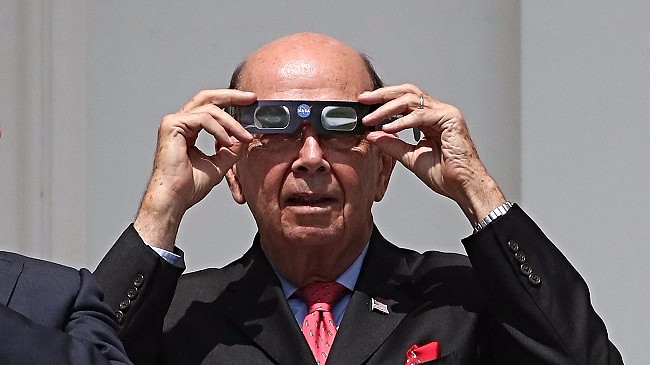
The saga of Commerce Secretary Wilbur Ross’s missing billions took another interesting turn last week, when Irish politician and European Parliament member Luke Ming Flanagan accused Donald Trump’s cabinet official of insider trading in a new report. According to Mother Jones, Flanagan and his fellow Irish and European lawmakers began questioning the commerce department head’s personal finances soon after he was confirmed by the United States Senate earlier this year. In particular, they had questions about Ross’s 2014 sale of his personal shares in the Bank of Ireland.
So Flanagan commissioned an investigation into the deal as part of a larger report detailing the 2008 eurozone banking crisis. The final version of said report was handed over to the European Union’s governing body last week, and in the section regarding Ross’s bank shares sale, the American businessman was accused of insider trading:
The report alleges that when Ross sold off his holdings in the bank for a massive profit in 2014, he possessed inside information that the bank was relying on deceptive accounting practices to mask its losses and embellish its financial position.
Ross’ involvement with the Bank of Ireland began in July 2011, when his hedge fund, WL Ross & Co., joined several institutional investors to purchase a 34.9 percent stake in the struggling financial firm for 1.12 billion euros ($1.6 billion). At the time, the deal “led to much head-scratching,” according to the Irish Examiner.
Said “head-scratching” was, as Mother Jones explains, due to the fact that Ross was able to buy bank shares at 10 euro cents two months after the Bank of Ireland was bailed out by the Irish Central Bank. Two months prior, the shares were worth up to 30 euro cents. Following a brief stint as a member of the bank’s board of directors, Ross then began selling large swathes of shares in 2014 for the whopping prices of 33 and 26 euro cents apiece. His involvement with the bank ultimately nabbed him 500 million euro, or $682 million — and investigators believe Ross’s success was due to more than just dumb financial luck.
(Via Mother Jones)
